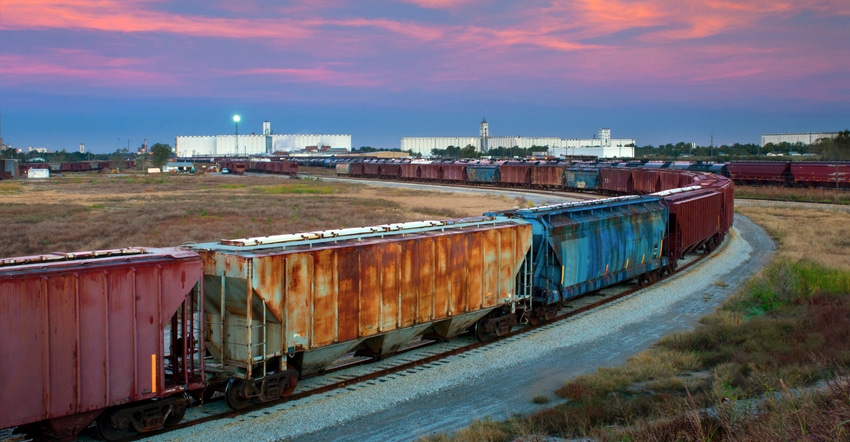House passes rail contract, mandates sick time
Senate still must approve the action to avoid a crippling rail strike.

The U.S. House of Representatives passed legislation today averting a nationwide rail strike. The bill now heads to the Senate for approval.
President Joe Biden commends House members for their votes to prevent the shutdown but says the Senate must "urgently" pass the legislation. Without Senate approval, rail workers are set to begin a nationwide strike on December 9.
I'm grateful to Speaker Pelosi and bipartisan House members for acting to prevent a rail shutdown, making clear it would devastate our economy and families everywhere.
— President Biden (@POTUS) November 30, 2022
But without more action, supply chain disruptions will begin.
The Senate must urgently send a bill to my desk.
Representatives passed the bill in a 290 to 137 bipartisan vote to impose a tentative contract deal for 115,000 workers across the country. The resolution will need 60 votes to pass the Senate before arriving at Biden’s desk for his signature.
Following that action, the House voted on legislation to give seven days of paid sick leave to railroad employees, which has been a sticking point in negotiations between rail companies and unions. That legislation also passed in a 221 to 207 vote, but it faces uncertainty as it goes to the Senate.
Quick Senate action on the bill, H.J. Res 100, will depend on obtaining unanimous consent to waive days of standard procedural delays on floor votes, Bloomberg reports. Only three Republicans voted for the sick leave measure, which doesn’t bode well for that piece of the resolution to get enough GOP support in the Senate to pass.
Rail unions shared mixed sentiments following the two votes. When it comes to paid sick leave, the BMWED representing the largest portion of rail union workers says it should not be a political issue. "This is an issue about protecting our workers who ensure the nation's rail infrastructure and supply chain function as best as possible," the union shares in a statement.
"While the unions didn’t get everything their members wanted through the Presidential Emergency Board process and subsequent negotiations, they secured some major wins for workers," says the Transportation Trades Department, a coalition of unions from every mode of transportation. "Today, Congress has an opportunity to grant sick leave to rail workers, thus rectifying a major omission by the PEB. "
Ag groups react
The U.S. Grains Council applauds the House on the decision. “The U.S. Grains Council believes the federal government, the railroads and the private sector should work together to assure no shutdown occurs,” says Ryan LeGrand, U.S. Grains Council president and CEO. “Ratifying the tentative agreements already in place is a step in the right direction to coming to a solution agreeable to all parties.”
The National Cotton Council was among hundreds of food and agriculture groups that sent a letter to Congress today urging leaders to pass the legislation immediately. NCC chairman Ted Schneider says a rail strike would be "detrimental to every cotton industry segment,” including farmers who need equipment parts and fertilizer, cattle ranchers waiting on cottonseed shipments, merchandisers relying on raw cotton shipments, and textile mills employing thousands of workers.
Still, the ag industry is watching closely as the bill heads to the Senate. "We urge to Senate to act on this bill immediately so that it can be signed into law by the president well in advance of the strike deadline on December 9," says National Council for Farmer Cooperatives president Chuck Conner.
"We are encouraging farmers and ranchers across the United States to contact their Senators and urge them to support [the resolution]," says Kent Bacus, National Cattlemen's Beef Association executive director of government affairs.
Any delay in congressional passage of the tentative agreement increases the likelihood of rail service disruptions as railroads begin to embargo certain materials before a potential shutdown. Rail operators are set to slow down operations as soon as this week in preparation for a strike, which will worsen the already crippled supply chain.
About the Author(s)
You May Also Like





